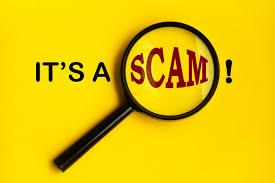
This is a scam
This is a scam: how to defend yourself from online Fraud
This is a scam: In the digital age, the internet has come to be a breeding ground for scams and fraudulent sports. From faux websites to phishing scams, cybercriminals employ an expansion of strategies to mislead and make the most unsuspecting customers. information the way to perceive these scams and protect yourself is essential. this text will delve into the keyword “that is a scam,” providing complete steering on recognizing fraudulent activities and answering pertinent questions related to online scams.
How to test if a website is legitimate?
With limitless websites to be had, it could be tough to distinguish between valid and fraudulent ones. right here are a few crucial tips that will help you determine if a website is straightforward:
Check the URL:
A valid website could have an at-ease URL, indicated through “https://” and a padlock icon in the cope with bar. Be careful of websites with misspelled domains or more characters.
Studies the internet site:
Behavior a quick search at the internet site’s name in conjunction with key phrases like “opinions” or “scam.” If there are a couple of lawsuits or poor reviews, it is a purple flag.
Search for touch information:
Valid websites will provide clean contact records, along with a bodily address, and get in touch with quantity. Confirm that information through a seek engine.
Check for SSL Certification:
Comedy websites use SSL certificates to encrypt records. look for the padlock symbol and “https://” in the URL.
Review the content material:
Bad grammar, spelling mistakes, and occasional-first-rate photos are signs of a scam website. legitimate sites generally have expert content and layout.
Use online Tools:
Web sites like WHOIS, Better Commercial Enterprise Bureau, and Scam Advisor can offer unique facts about a website’s registration and recognition.
How to test Scammer websites?
Scammer websites are designed to look valid however aim to scouse borrow your private records or cash. Right here’s how to spot them:
Too good to Be genuine offers:
If a website is offering offers that appear too properly to be genuine, they probably are. Scammers use appealing offers to entice victims.
Unusual payment techniques:
Be cautious of websites that only accept payment via unconventional strategies like cord transfers, gift playing cards, or cryptocurrencies.
Lack of clean regulations:
Legitimate websites have clean go back, refund, and privacy guidelines. The absence of these rules or indistinct descriptions is a warning sign.
Check Internet site Age:
Use WHOIS or other domain tools to test how long the Internet site has been energetic. Scam websites are frequently newly created.
Consider Seals:
Verify accept as true with seals (like Norton, McAfee) with the aid of clicking on them to see if they cause the certification page. Fake websites often use photos of those seals without proper authorization.
Is this a Phishing scam?
Phishing scams are designed to steal touchy statistics such as usernames, passwords, and credit score card information by masquerading as a sincere entity. here are key indicators of phishing scams:
Surprising emails:
Be cautious of unsolicited emails from unknown senders, in particular the ones inquiring about non public statistics or pressing movements.
Suspicious links:
Hover over links to peer the real URL before clicking. Phishing emails regularly contain links that lead to malicious websites.
Generic Greetings:
Legitimate corporations typically deal with you using your call. Widely widespread greetings like “dear patron” can imply a phishing attempt.
Urgent or Threatening Language:
Phishing scams often create a feeling of urgency or fear to activate instant movement without proper attention.
Attachments:
Keep away from commencing e-mail attachments from unknown resources. they could include malware or viruses.
Take a look at Sender’s e-mail address:
Phishers regularly use e-mail addresses that are much like legitimate ones but with mild versions. confirm the sender’s deal with cautiously.
Conclusion
In the end, the internet is rife with scams, and recognizing the signs of fraudulent activities is vital for defending yourself. using following the recommendations on how to check if a website is authentic, figuring out scammer websites, and recognizing phishing scams, you can navigate the virtual world more competently. take into account, constantly work caution, agree with your instincts, and whilst in doubt, behavior thorough studies to make sure you don’t fall sufferer to scams. stay knowledgeable, stay secure, and spread attention about those deceptive practices. that is a rip-off: do not permit it to fool you.




Vitazen Keto Nice post. I learn something totally new and challenging on websites
Thanks for your kind words.
You can contact me here for any enquiry https://bsbforensic.com/contact/